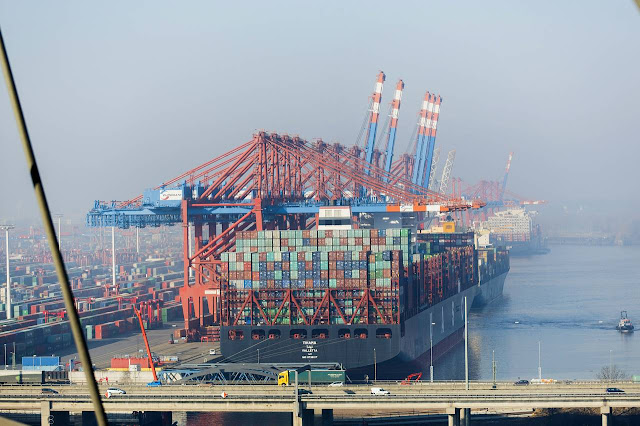IMF WARNS AGAINST TRADE IMBALANCES / THE WALL STREET JOURNAL
IMF Warns Against Global Trade Imbalances
But the fund criticizes protectionism as a solution, saying it could derail the global economy
By Ian Talley
The IMF called out Germany’s savings glut – built out of a large trade surplus -- as a primary risk to the global economy in a new report. Photo: Morris MacMatzen/Getty Images
Trade protectionism and trade imbalances risk undermining global economic growth, the International Monetary Fund warned Friday.
Large current account imbalances–the broadest measure of economies’ cross-border trade and finance–are fueling a rise in protectionist policies across the globe, the IMF said in its annual assessment of economic distortions around the world.
It pointed in particular to the risks of a trade war between U.S. and China, where the two governments are increasingly at odds over policies meant to protect domestic industries from foreign competition.
“Protectionist policies should be avoided at all costs,” Luis Cebeddu, a top economist in the IMF’s research department said. “They are unlikely to meaningfully address external imbalances and they would be extremely harmful for domestic growth and global growth.”
And similar to the buildup of savings that many economists say contributed to the global financial crisis in 2008, the fund said debtor nations like the U.S. risk over-borrowing again. While Asian economies were the biggest creditor nations fueling the borrowing binges in the U.S. and Europe then, now the IMF called out Germany’s savings glut – built out of a large trade surplus — as a primary risk.
The IMF said the gap between Germany’s current account surplus and where market fundamentals suggest the country’s trade and finance balance should be is around 6% of GDP. The euro would need to rise by 10% to 20% to rebalance the country’s international trade and finance position vis-a-vis other countries. Because the country is part of the eurozone, and so its hands are relatively tied on changing the currency’s value, the IMF and the U.S. have been urging the country to spend more and save less.
The red flags raised by the IMF in its “External Sector Report” give credence to the Trump administration’s argument that the balance of trade and finance between many of the world’s largest economies are out of whack.
But it criticizes the administration’s strategy of threatening new tariffs and barriers to foreign trade and investment as a tool to get other countries to give U.S. firms better access. It suggests that Beijing’s exchange-rate appreciation and surging service sector has diminished the warping effects its economy had been having on the world.

0 comments:
Publicar un comentario